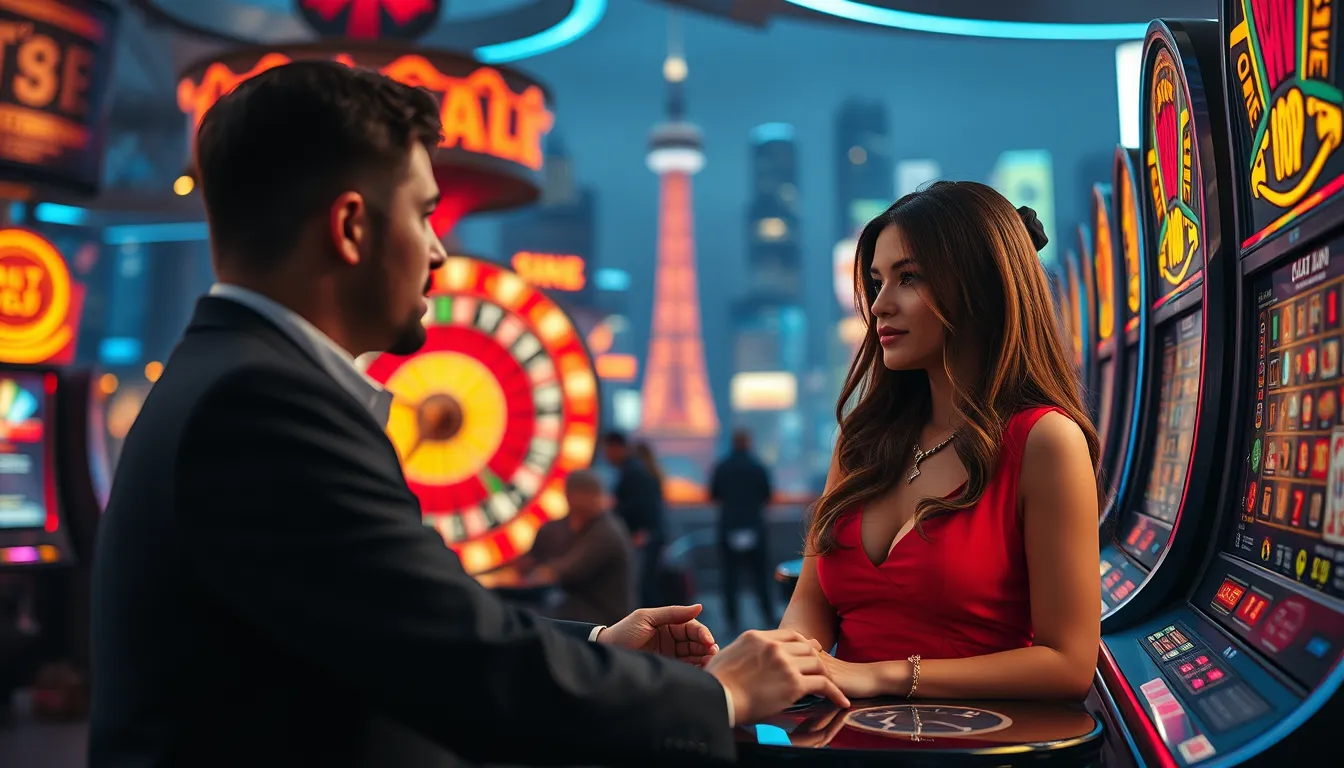Walk into any casino, and you’ll quickly notice that slot machines are more than just games—they’re surrounded by rituals, beliefs, and superstitions. From players tapping the screen before every spin to others refusing to leave a machine that feels “hot,” these behaviors highlight the fascinating psychology of gambling. But why do people believe in slot machine superstitions, especially when the outcomes are determined by random number generators (RNGs) and not by luck or magic? The answer lies in a mix of human psychology, cultural traditions, and the emotional pull of chance.
The Origins of Slot Superstitions
Superstitions in gambling are as old as the games themselves. Early slot machines, introduced in the late 19th century, often featured fruit symbols and simple mechanical reels. Back then, players believed certain seats, times of day, or even clothing choices could influence results. While technology has advanced dramatically, the core belief that a player can influence chance hasn’t disappeared.
The rise of online platforms has also carried these traditions into the digital world. Many players on gambling sites not on gamstop still hold on to rituals like playing at specific hours or using certain “lucky” slot titles. The fact that the digital setting removes any physical element doesn’t stop people from believing in superstitions—it just reshapes them.
The Psychology Behind Belief
One of the key reasons people cling to slot machine superstitions is the human brain’s tendency to look for patterns. Known as “illusory correlation,” this phenomenon describes our habit of linking unrelated events. For example, a player may win after wearing a red shirt and then believe the shirt is lucky. Over time, this reinforces the superstition.
Another major factor is the concept of “control.” Slot machines are completely random, leaving players with no influence over outcomes. Superstitions offer a sense of agency in an uncontrollable environment. Believing that tapping the screen or choosing a certain machine matters helps players feel more in control of their experience.
Common Slot Machine Superstitions
While superstitions vary by culture and individual, some themes repeat across casinos worldwide. Many players believe in “lucky seats” or certain areas of a casino where machines are looser. Others think machines that haven’t paid out in a while are “due” for a jackpot. Some refuse to let anyone else press the spin button, convinced that it affects their luck.
Online players have adapted these habits in surprising ways. They might only log in at certain times of the day, believe specific games are luckier than others, or even think their internet speed can influence results. The persistence of these beliefs shows how deeply ingrained superstition is in gambling psychology.
Cultural Influence and Traditions
Superstitions often reflect cultural backgrounds. In some Asian cultures, for example, the number eight is associated with wealth and prosperity, while the number four is considered unlucky. Players may choose machines or times to play based on these beliefs. In Western contexts, lucky charms like rabbit’s feet or horseshoes sometimes make appearances at casino tables.
These cultural traditions don’t vanish when people shift to digital gaming. Instead, they evolve, with players finding ways to apply them in online environments. Whether it’s choosing games with certain symbols or arranging their playing schedules around auspicious times, superstition remains a powerful motivator.
The Role of Casinos in Reinforcing Belief
Casinos don’t actively promote superstitions, but they benefit from them. The environment itself—bright lights, celebratory sounds, and visible jackpot displays—encourages the idea that luck is within reach. When someone nearby hits a jackpot, players may believe they’re in the right place at the right time, further fueling their rituals.
Online casinos use similar techniques, with flashing banners, winner notifications, and special promotions tied to certain games. This design keeps players engaged and makes it easier for superstitions to thrive.
Superstition vs. Reality
The reality, of course, is that slot machines operate on RNGs. Each spin is independent, unaffected by past spins or external rituals. No amount of tapping, timing, or lucky clothing can influence the outcome. The machines don’t remember wins or losses, and they certainly don’t respond to personal charms.
Still, that doesn’t mean superstitions don’t serve a purpose. They often enhance the entertainment value of the game. For many players, rituals add to the thrill, creating a more personal and engaging experience. In some cases, these beliefs also help players cope with losses by attributing them to bad luck rather than chance.
Should Players Embrace or Avoid Superstitions?
Whether or not to indulge in superstitions comes down to balance. If they add fun to the game without leading to harmful behaviors, there’s no real downside. However, problems arise when players chase losses, convinced that a machine is “due” or that their luck will eventually change. This can lead to excessive spending and risky behavior.
Responsible gambling means understanding that slots are random and unpredictable. Superstitions should remain lighthearted rituals rather than guiding principles. Setting clear limits, playing for entertainment, and avoiding the temptation to “prove” a superstition are essential steps toward keeping the experience enjoyable.
Final Thoughts
Slot machine superstitions are a fascinating mix of psychology, culture, and emotion. They reveal how humans seek control in uncertain environments and how rituals bring comfort in games of chance. While they have no effect on the actual outcome, they remain an important part of the gambling experience, both in physical casinos and online.
For players, the key is to recognize superstition for what it is—a harmless quirk that adds to the fun, not a strategy for success. Gambling should always be about entertainment, not certainty. By keeping this perspective, players can enjoy the excitement of slots without falling into the trap of false beliefs.








